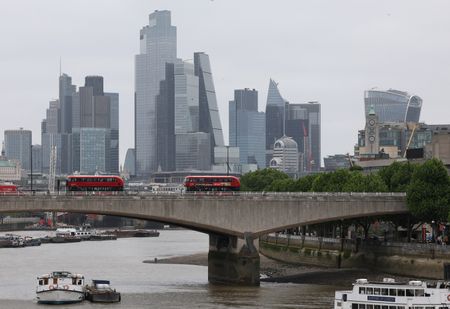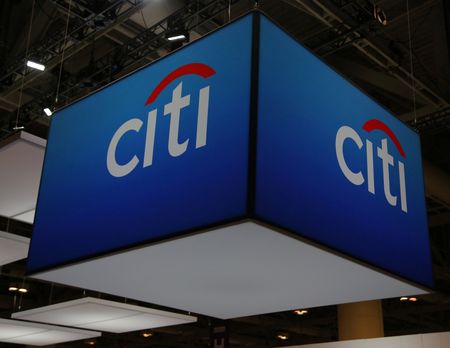By William James and William Schomberg
LONDON (Reuters) -Risks have grown that inflation in Britain will prove stronger than the Bank of England has forecast, meriting a cautious approach to further interest rate cuts, BoE policymaker Megan Greene said on Wednesday.
Greene voted last week with the majority of members of the BoE’s Monetary Policy Committee to keep the central bank’s benchmark Bank Rate at 4%. In August she had opposed the quarter-point cut that was approved in a narrow 5-4 decision.
“I believe an appropriate response to the uncertainty and risks we are currently facing should involve a cautious approach to rate cuts going forward,” she said in the text of a speech published by the BoE.
“The risks to our inflation outlook have shifted to the upside,” Greene said. She cited persistent price pressures after the shocks of the COVID pandemic and Russia’s invasion of Ukraine, which sent energy prices soaring.
Greene said she was less concerned about a rapid weakening of the labour market than she was a year ago.
In her speech to the University of Glasgow, Greene said it was time to rethink the typical approach by central banks to look beyond supply shocks to the economy, and instead factor them into monetary policy decisions.
At its meeting this month, the BoE suggested it could slow the pace of its rate reductions in borrowing costs in the face of Britain’s stubborn inflation pressures. Investors are pricing a next rate cut only in February or March next year.
Britain has the highest inflation rate among Group of Seven economies, at 3.8% in August, and the BoE thinks it will peak at 4% in September before falling back to the central bank’s 2% target only in the spring of 2027.
The BoE’s chief economist, Huw Pill, one of the MPC members who has been most concerned about inflation, said on Tuesday that he was more comfortable with the outlook for price pressures in Britain than he was earlier this year.
In a newspaper interview published on Wednesday, Governor Andrew Bailey reiterated his view that borrowing costs are likely to fall further.
“But exactly when that will be and how much it will be will depend on the path of inflation going down,” Bailey told West Midlands Life.
(Reporting by William James and William Schomberg; editing by Barbara Lewis and Leslie Adler)










